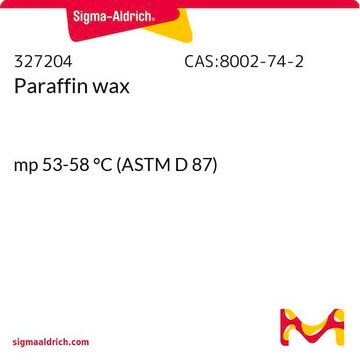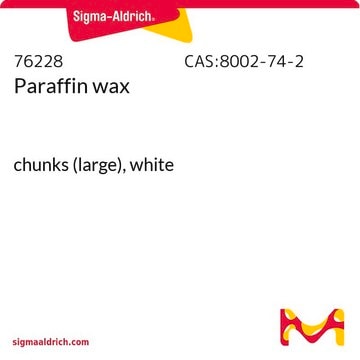Recommended Products
grade
SAJ first grade
form
solid
availability
available only in Japan
mp
66-68 °C
InChI key
JWHAUXFOSRPERK-UHFFFAOYSA-N
Looking for similar products? Visit Product Comparison Guide
Storage Class
13 - Non Combustible Solids
wgk_germany
nwg
flash_point_f
602.6 °F - Pensky-Martens closed cup
flash_point_c
317 °C - Pensky-Martens closed cup
ppe
Eyeshields, Gloves, type N95 (US)
Certificates of Analysis (COA)
Search for Certificates of Analysis (COA) by entering the products Lot/Batch Number. Lot and Batch Numbers can be found on a product’s label following the words ‘Lot’ or ‘Batch’.
Already Own This Product?
Find documentation for the products that you have recently purchased in the Document Library.
Laiguo Chen et al.
Journal of chromatography. A, 1274, 36-43 (2013-01-05)
Accurately quantifying short chain chlorinated paraffins (SCCPs) in soil samples with gas chromatograph coupled with electron capture negative ionization mass spectrometry (GC-ECNI-MS) is difficult because many other polychlorinated pollutants are present in the sample matrices. These pollutants (e.g., polychlorinated biphenyls
Banu Dilek et al.
Archives of physical medicine and rehabilitation, 94(4), 642-649 (2012-11-29)
To evaluate the efficacy of paraffin bath therapy on pain, function, and muscle strength in patients with hand osteoarthritis. Prospective single-blinded randomized controlled trial. Department of physical medicine and rehabilitation in a university hospital. Patients with bilateral hand osteoarthritis (N=56).
Xue-Tong Wang et al.
Environmental science and pollution research international, 20(7), 4742-4749 (2013-01-08)
Short-chain chlorinated paraffins (SCCPs) are extremely complex technical mixtures of polychlorinated n-alkanes with carbon chain lengths from C10 to C13 and chlorine content between 49 and 70%. SCCPs are under consideration for inclusion in the Stockholm Convention on persistent organic
[Paraffin throughout history].
I Maatouk et al.
Annales de dermatologie et de venereologie, 140(2), 154-156 (2013-02-12)
Roman Zimmermann et al.
Plant physiology, 152(1), 356-365 (2009-11-21)
In an approach to study lateral root development in monocots, genome-wide searches for homologs of the Gibberellic Acid Stimulated Transcript-like (GAST-like) gene family in rice (Oryza sativa) and maize (Zea mays) were carried out. Six novel GAST-like genes in rice
Our team of scientists has experience in all areas of research including Life Science, Material Science, Chemical Synthesis, Chromatography, Analytical and many others.
Contact Technical Service





